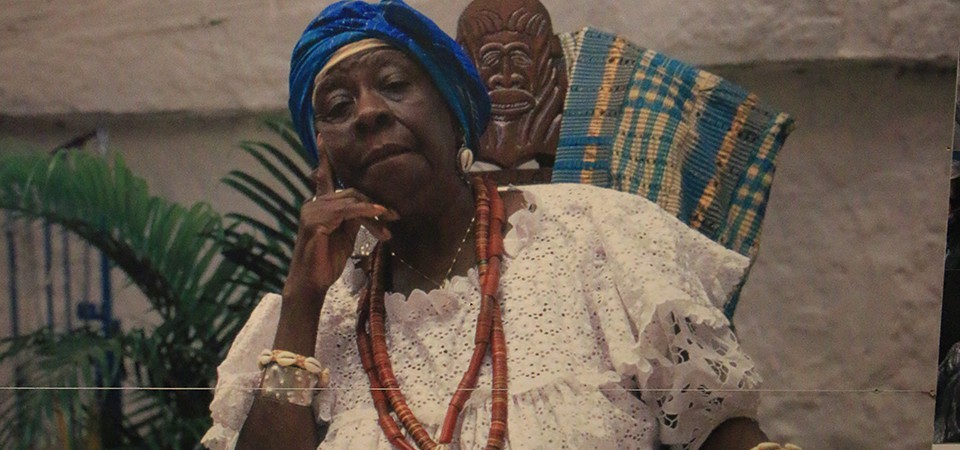Syllabus
Latin America Culture: a perspective since 1900
Instructor: Dr. Manuel F. Medina
ML 260
Introduction to the Hispanic Culture
Time: MW 2:00 - 3:15 pm. DA 308
Fall 2018
Latin America Culture: a perspective since 1900
An introduction to Hispanic culture and ethnicity within a global context.
Dr. Manuel F. Medina
E-mail: manuel.medina@louisville.edu
Office: 329B Bingham Humanities Building
Phone number: 502-852-0501
Office Hours: M 1:00 - 1:50 p.m. and T: 4:00 - 5:00 p.m. and by appointment
Class website: http://medina502.com/classes/ml260_2017
Pre-requisites:
None.
Goals:
- The class will study Hispanic fiction and film within a global context.
- The students will examine selected readings to familiarize themselves with the main historical topics and contexts prevalent in the Hispanic cultural production, including an understanding of how race, ethnicity and gender are socially constructed.
- The students will learn critical theory related to the ideological construction of texts to learn to examine assertions for relevance, bias, stereotyping, manipulation, and completeness.
- The class will identify the multiple dimensions of reasoning, assumptions and perspectives generally excluded from these forms of cultural and ethnic expression.
- The course will emphasize student collaboration, in-class discussion and lectures.
Objectives
Upon successful completion, the students will be able to accomplish the following tasks:
- Discuss key point associated with Hispanic culture and ethnicity within a global context.
- Discuss and identify ideologies and perspectives present in the Hispanic cultural production.
Locate, evaluate, and creatively answer questions about Hispanic culture and ethnicity within a global context.
- Identify how race, ethnicity and gender are socially constructed within the context of the Hispanic cultural production.
- Communicate an understanding that Hispanic culture may hold different views of the same issues.
General Education requirements fulfilled by this course: This course fulfills a General Education requirement in Humanities CD 1. One goal of the course will be to understand and appreciate cultural diversity. Key elements related to this goal include the following: recognizing ways that culture shapes our behaviors and attitudes, demonstrating an understanding of the relationship between culture and environment, recognizing the diversity within cultural groups, and analyzing the impact of cultural diversity on problems and societal issues. In part, this understanding will be (explicitly) modeled during course discussions and/or group presentations. Your progress in this area will be assessed with several writing assignments, culminating in a final research paper focused on an assigned literary text and topic.
Arts and Humanities (6 hours: one course in Arts; one in Humanities) are concerned with understanding texts of art, music, theatre, literature, philosophy, and religious thought. Students who satisfy this requirement will demonstrate that they are able to do all of the following:
1. Communicate an understanding of vocabulary, concepts, materials, techniques, and methods of intellectual inquiry within the arts and/or humanities;
2. Describe and evaluate texts using primary and secondary materials;
3. Analyze and synthesize texts, recognizing the diversity of cultures and historical contexts.
Understanding Cultural Diversity means students will have a broad exposure to a variety of social systems, cultures, and subcultures, both within the United States and the rest of the world. This portion of the curriculum encourages an appreciation of the realities of a racially and culturally diverse world. Students who satisfy this requirement will demonstrate that they are able to do all of the following:
1. Recognize that social and cultural systems develop out of adaptation to environmental and historical circumstances;
2. Communicate an understanding of the ways in which race, ethnicity, and/or gender are socially constructed;
3. Communicate an understanding that different cultures may hold different views of the same issues;
4. Evaluate pertinent information and assertions for relevance, bias, stereotyping, manipulation, and completeness.
Required textbooks/films
Books:
(No available from the campus bookstores. Please order them from amazon.com or any other online or traditional bookstore)
- Álvarez, Julia. In the Time of the Butterflies. Any edition. Order from amazon.com
- Fuentes, Carlos. Old Gringo. Any edition. Order from amazon.com
Films:
- Even the Rain, (Icíar Bollaín, Spain, 2010)
Ekstrom Library Video Call Number: DVD PN1997.2 .E946 2012
Streaming video available from Netflix, Amazon Prime & DVD available from Netflix (DVD)
- Undertow, (Javier Fuentes León, Peru,2009 )
Ekstrom Library Video Call Number: DVD PN1997.2 .C667 2011
Streaming video available from Amazon Prime - Film: TBA. Only available during the Latin American Film Festival.
Additional materials:
And additional materials made available via the class website and Blackboard.
Grading Policy and Distribution
Grades are final and not negotiable
Teaching Methods:
This class demands active student participation. I expect you to contribute to the class discussions. Be sure to complete the assigned reading and watch the film before each class. Otherwise, you will be unable to take effective notes and to take part in the discussions. While lectures will cover the general topics, the assigned readings will provide you with complimentary information.
Submitting work: To get full credit, you must submit your homework or related assignments at the start of the
class on the date stated in the assignment schedule.
If you turn it in late, (at any time after the beginning of class), I will deduct 50% of its original value.
I will not accept late papers unless you and I have mutually agreed upon an extension before the paper's deadline.
I very seldom grant extensions.
Exams and oral presentations are due on the previously assigned dates.
Grading policies: Assignments & Percentages
1. Class Participation & attendance: . . . . . . 10%
Reading, analytical thinking, questioning, challenging old beliefs, expressing one's own opinions and writing represent the main components of this course. Please, make sure to complete all the assigned reading before class so you can participate in class discussions.
Attendance: I expect you to be present in all class sessions. If you don’t attend class, you’ll miss important information that will help you better understand the subject matter, the readings and to do well on the exams. You will also loose class participation points.
I will deduct points from your grade for every un-excused absence, after the first two, using the following scale:
___ Three to five: 5% deduction from the class grade
___ Six to eight: a one letter grade reduction
___ Nine or more: a failing grade (F) in the class
Note: Please, contact me regarding excused absences such as medical and family emergencies, jury duty, and other I could include in this category.
2. Quizzes, and other assignments . . . . . . 15%
These assignments must be submitted at the beginning of class.
3. Two Exams: . . . . . . 35%
The midterm (20%) and the final exam (15%) will each consist of answering short questions, locating items in a map and writing an essay. Your answers must incorporate ideas and issues addressed in class, along with your own points of view. The exams will measure your knowledge of the assigned readings, the videos, the class lectures, and the material introduced in the oral presentations.
4. Oral Presentation . . . . . . 20%
I have posted information in the class website.
5. Papers. . . . . . 20%:
I have posted information in the class website.
Grading scale:
95.5%-100% A+
92.5%-95.4% A
89.5%-92.4% A-
85.5%-89.4% B+
82.5%-85.4% B
79.5%-82.4% B-
75.5%-79.4% C+
72.5%-75.4% C
69.5%-72.4% C-
65.5%-69.4% D+
62.5%-65.4% D
59.5%-62.4% D-
0%-59.4% F
Letter Grade Definitions
100 to 90 = A, Exceptional
Student strongly exceeds all requirements as provided by the instructor. The work product not only meets the requirements of the project but also goes above and beyond the scope of work.
89 to 80 = B, Above Average
Student completes all requirements as provided by the instructor. Student is well prepared for every class, with daily assignments as requested by the instructor and participates in class discussions. Written work demonstrates good craft with acceptable attention to detail.
79 to 70 = C, Average
Student completes all requirements as provided by the instructor. The work products reflect basic comprehension of class objectives and work is completed to meet requirements only. Student is prepared for most class sessions with assignments as requested by the instructor.
69 to 60 = D, Poor
Student does not complete all requirements as provided by the instructor. The work products fail to reflect basic class principles and demonstrate lack of comprehension of course material. Student is often ill-prepared for class sessions. Written work and assignments are incomplete, poorly crafted and show a lack of attention to detail.
59 to 0 = F, Failing
Student completes a small portion of requirements as provided by the instructor. The work products fail to reflect basic class principles and demonstrate lack of comprehension of course material. Student is generally ill-prepared for class sessions. Written work and assignments are incomplete, poorly crafted and show a lack of attention to detail.
Student Academic Rights and Responsibilities:
Every student is expected to be thoroughly familiar with the University's Code of Student Rights and Responsibilities and Student Conduct which can be found in the General Information section of the Undergraduate Catalog.
Along with preparing for and attending class, each student has the responsibility of promoting high academic standards. Students are expected to cooperate in all classes with the instructor to achieve an optimal learning environment. The College of Arts and Sciences does not tolerate cheating, fabrication, falsification, multiple submission, plagiarism, or complicity in academic dishonesty. The College of Arts and Sciences has a statement of academic discipline for action against students who cheat or plagiarize.
Student Sexual Misconduct Policy
The Student Sexual Misconduct Policy (http://louisville.edu/dos/students/studentpoliciesandprocedures/student-sexual-misconduct-policy/student-sexual-misconduct-policy-2017-2018) outlines options for a student who believes he/she may have been or currently is a victim of sexual misconduct by a student, university visitor or employee within the university community.
University Policy on Discrimination and Sexual Harassment:
Sexual Harassment
Statement provided by PEACC
The University of Louisville strives to maintain the campus free of all forms of illegal discrimination as a place of work and study for faculty, staff, and students. Sexual harassment is unacceptable and unlawful conduct and will not be tolerated in the workplace and the educational environment. Unwelcome sexual advances, requests for sexual favors, and other verbal or physical conduct of a sexual nature constitute sexual harassment, even when carried out through computers or other electronic communications systems.
Students and Instructors are protected from Sexual Harassment according to the Affirmative Action policy, the Student Code of Conduct, and the UofL Computer Account Usage Agreement.
Anyone experiencing Sexual Harassment should refer to the links above and/or contact the PEACC Program at 852.2663 and an advocate will explain your choices. This is a free and confidential service.
Title IX/Clery Act Notification
Sexual misconduct (including sexual harassment, sexual assault, and any other nonconsensual behavior of a sexual nature) and sex discrimination violate University policies. Students experiencing such behavior may obtain confidential support from the PEACC Program (852-2663), Counseling Center (852-6585), and Campus Health Services (852-6479). To report sexual misconduct or sex discrimination, contact the Dean of Students (852-5787) or University of Louisville Police (852-6111).
Disclosure to University faculty or instructors of sexual misconduct, domestic violence, dating violence, or sex discrimination occurring on campus, in a University-sponsored program, or involving a campus visitor or University student or employee (whether current or former) is not confidential under Title IX. Faculty and instructors must forward such reports, including names and circumstances, to the University's Title IX officer.
Code of Student Conduct
The Dean of Students Office (DOS) meets with students to assess situations of possible non-academic misconduct as described in the Code of Student Conduct, (http://louisville.edu/dos/students/codeofconduct). The University's Code of Student Conduct is promulgated to give students general notice of non-academic prohibited conduct. The Code should be read broadly and is not designed to define non-academic misconduct in exhaustive terms. Students are responsible for adhering to the Code of Student Conduct and should familiarize themselves with the Code. In order to protect and preserve a quality educational environment for the campus community, the DOS offers education and support for students struggling with a crisis, concern or behavioral issues.
Policy on Instructional Modifications or accommodations:
I encourage students who have a disability or other educational, physical or mental limitations or conditions which may impair their ability to complete assignments or otherwise satisfy course criteria to meet with me to identify, discuss and document any feasible instructional modifications or accommodations. Please notify me no later than the end of the second week of the semester or no later that the end of the second week after you get diagnosed with a disability or condition, whichever occurs first. You may contact the Disabilities Resource Center for information and auxiliary aid.
The University of Louisville is committed to providing access to programs and services for qualified students with disabilities. If you are a student with a disability and require accommodation to participate in and complete requirements for this class, contact the Disability Resource Center (852-6938) for verification of eligibility and determination of specific accommodations.
Tech requirements for success in class
Teaching method: hybrid: online/synchronous and face-to-face
Schedule of synchronous or face-to-face classes,
Online access/alternatives for quarantined or ill students: All classes will be broadcasted, so you can access them if you cannot make it to face to face classes.
Contingency plan In the event of an emergency, we will switch entirely to online instruction
Online office hours instructions: Tuesdays and Thursdays from 4:00 - 5:00 p.m. and by appointment
Public Health Guidelines and Regulations:
As a Community of Care, all Cardinals are expected to abide by public health guidelines and regulations as published by the University. For Fall 2020, this includes:
- wearing of cloth/paper masks (covering nose and mouth) when in shared indoor spaces like classrooms, or when appropriate physical distancing cannot be maintained. (Per the code of student conduct-- revised July 2020--a student who refuses to follow these guidelines may be asked to leave a classroom)
- staying home when sick—any UofL community member experiencing fever, consistent dry cough, or other symptoms of contagious disease should remain at home until symptoms subside or advised that it is safe to return by a medical professional.
- practicing good hygiene and responsibility for one’s own surrounding.
- a. Cover sneezes and coughs
- b. Wash hands frequently with soap and water when possible; use hand sanitizer when soap and water are not available
- c. Wipe down frequently touched surfaces
- d. Maintain six feet physical distancing when possible
Note: The instructor reserves the right to make changes in the syllabus when necessary to meet learning objectives, to compensate for missed classes, or for similar reasons.
Reading and Assignment Schedule
See Reading and Assignment Schedule page for a list of assignments and links to readings and additional materials.











 1
1 2
2 3
3 4
4 5
5 6
6 7
7 8
8 9
9 10
10 11
11